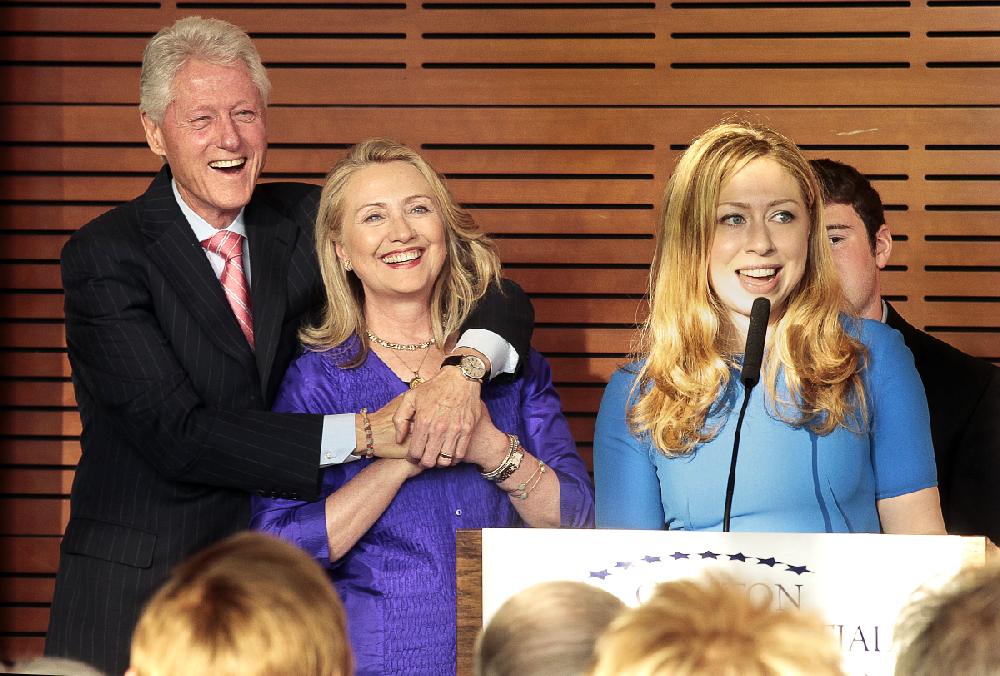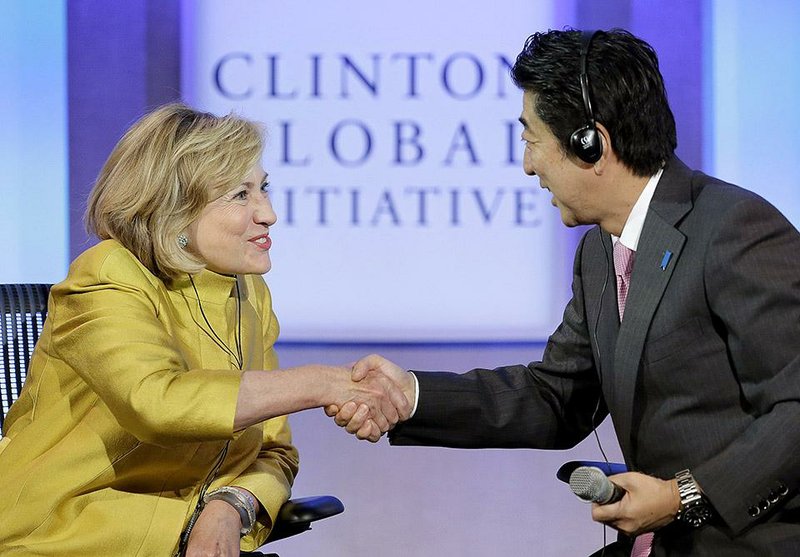NEW YORK -- Former Secretary of State Hillary Rodham Clinton announced a $600 million effort Wednesday to enroll girls in secondary schools around the globe, aiming to address security and access problems in places such as sub-Saharan Africa and southwest Asia.

Clintons
Clinton announced the effort Wednesday at the annual meeting of the Clinton Global Initiative, which partnered with the Center for Universal Education at the Brookings Institution to help draw participation. More than 30 groups have committed to the project.
"We know when girls have access to quality education in both primary and secondary schools, cycles of poverty are broken, economies grow, glass ceilings crack and potential is unleashed," Clinton said.
The money is expected to aid about 14 million girls, typically between the ages of 11 and 16, in the next five years. It will establish programs to help them enter secondary schools in safe environments, improve the quality of learning, complete secondary educations and support them through universities and into the workforce.
Each group -- including nonprofit organizations like the United Nations Children's Fund, the country of Nepal and corporations such as Pearson PLC and MasterCard Inc. -- will decide how its own money is spent to achieve the effort's goals.
"We've made progress at the primary level," said Rachel Vogelstein, director of women and girls programs at the Clinton Foundation. "This initiative addresses the unfinished business in girls' education, which is progress at the secondary level."
The idea for the project came from Julia Gillard, the former Australian prime minister, in her role as a fellow with Brookings, said Jennifer Klein, senior adviser for the foundation's women and girls programs. Gillard, the first woman to lead Australia, was defeated in a leadership vote last year.
Gillard, who is also board chairman of Washington-based nonprofit group Global Partnership for Education, approached Clinton more than a year ago with the idea to work on "second-generation" girls' education issues, Klein said.
The result is called Collective Harnessing Ambition & Resources for Girls Education, or CHARGE. For groups to participate, they must have already raised 75 percent of the money they plan to commit, Klein said.
"Each partner will determine the needs of the country where they are working," Klein said.
For example, a group called BRAC, founded in 1972 as Bangladesh Rural Advancement Committee, will work in eight countries to teach life skills, financial literacy and microfinance, among other initiatives. The government of Nepal will provide bicycles for girls to get to school.
The Clinton Global Initiative, which began Sunday night and concluded Wednesday, is an annual gathering of political and business leaders, philanthropists and celebrity activists.
Some of the speakers included World Bank Group President Jim Yong Kim; actor Leonardo DiCaprio; President Barack Obama; and Mary Barra, chief executive officer of General Motors Co.
Information for this article was contributed by Ken Thomas of The Associated Press.
A Section on 09/25/2014
